The Barren Isles is an archipelago of nine islands in the Mozambique Channel off of Madagascar’s west coast. Its ecosystem is extraordinarily diverse, comprising vast coral reefs, offshore islands, seamounts, extensive mangrove forests, estuarine marshes, and coastal dunes backed by dense forests. It is also home to seasonal nomadic fishers from the Vezo tribe.
The Barren Isles face grave threats now familiar to much of the Indian Ocean: unsustainable and destructive fishing, conflict between small-scale and industrial fishers, and mineral resource exploration.
Blue Ventures has been working in the Barren Isles for the last eight years. Last year, we launched a conservation and community engagement project supported by the Blue Action Fund in an effort to increase resilience to climate change in the archipelago, which is the largest Locally Managed Marine Area (LMMA) in the Western Indian Ocean, supporting over 6000 people.
One of the ways Blue Ventures aims to increase climate resilience is through access to data. Access to data allows coastal communities to monitor their fisheries themselves and make evidence-based decisions about their own ecosystems
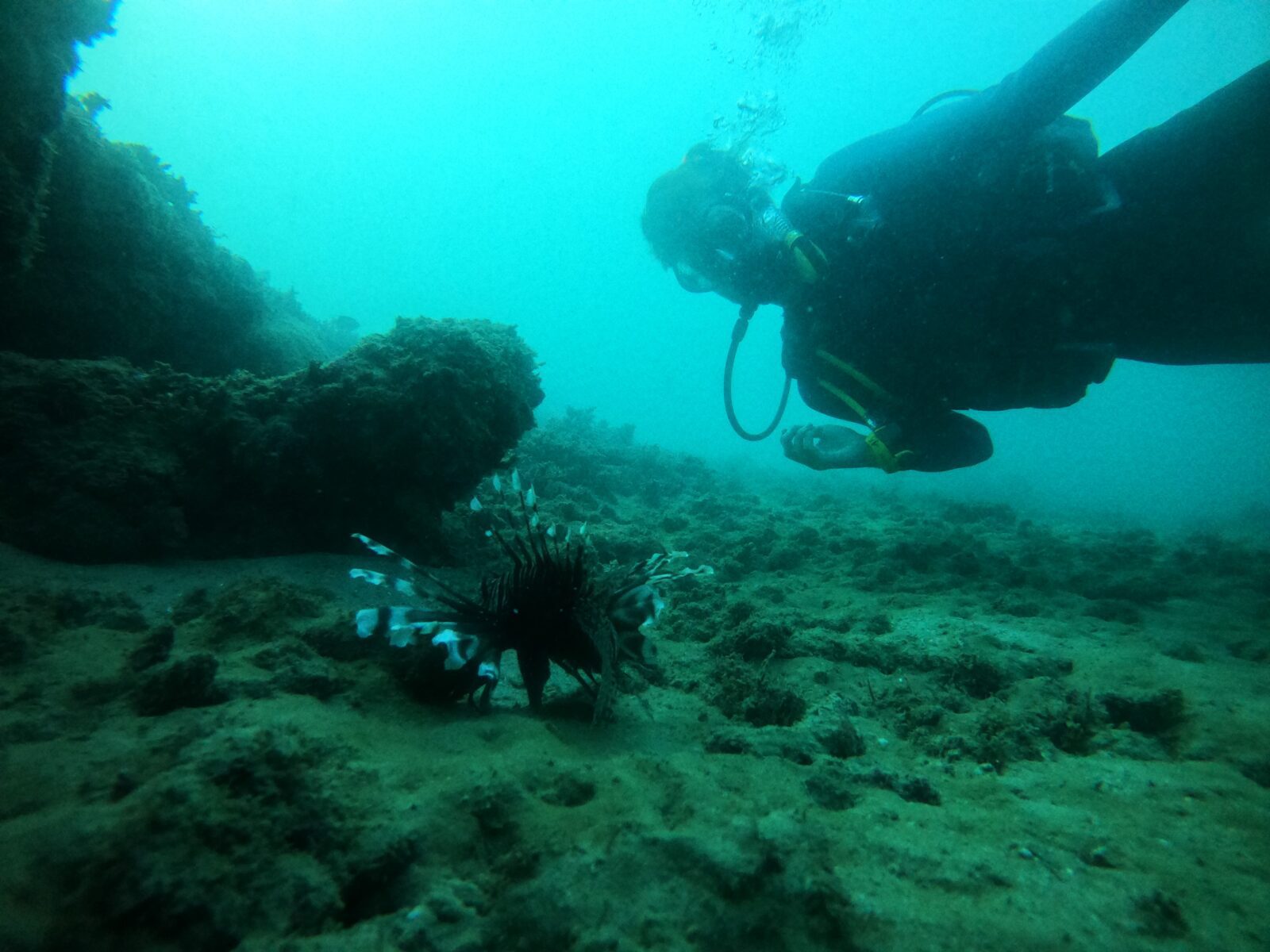
Photo by Graham Ragan
This month we have been putting this into action by training five Vezo community members from the Barren Isles in PADI Advanced Open Water Diving as the first step in encouraging local data ownership. The first two weeks of training involved gaining the technical diving skills to become professional and certified divers and the basics of marine species classification. The next stage of the training will focus on ecological monitoring for the trainees to learn how to survey and monitor the health of their marine areas.
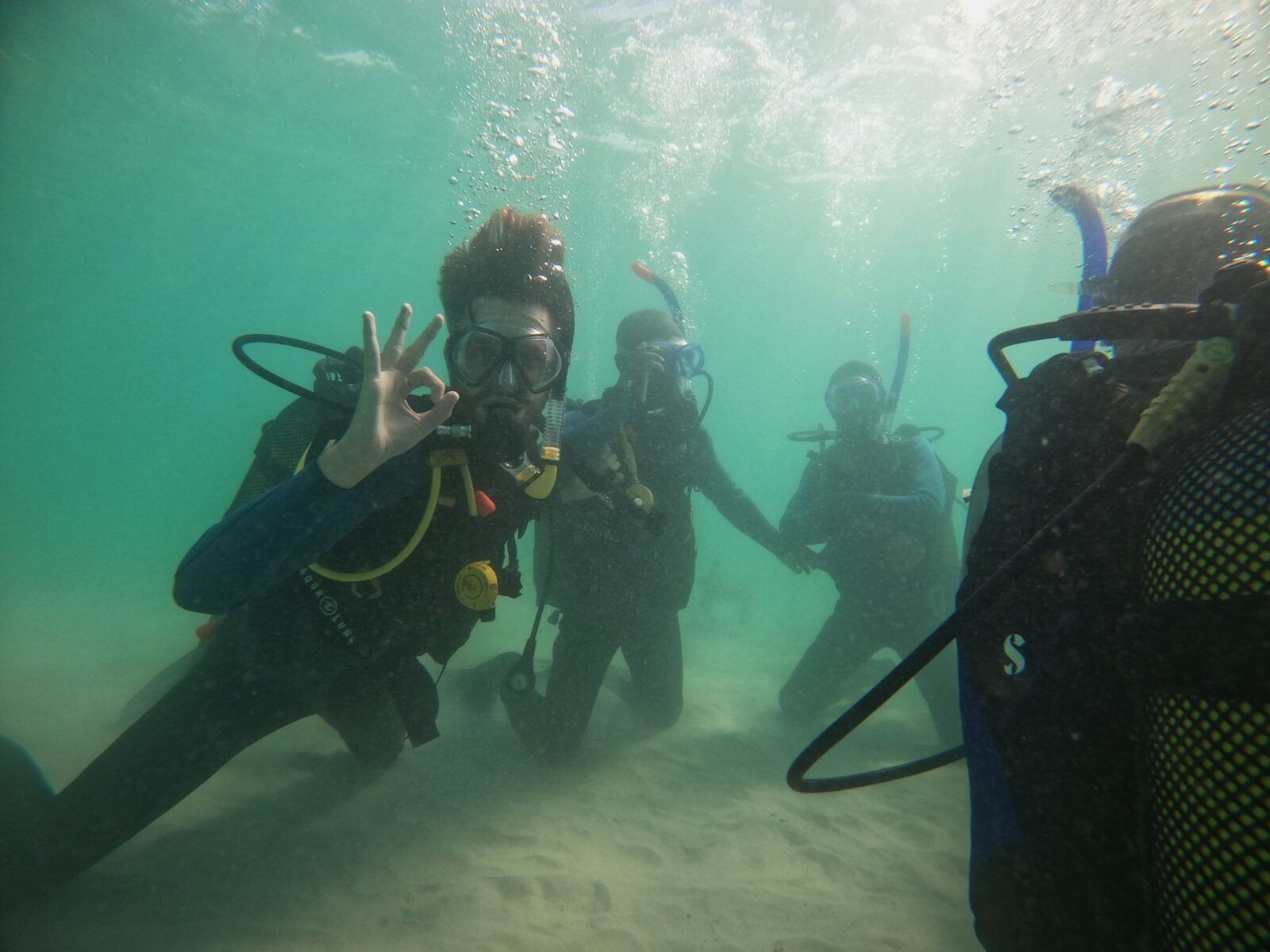
Photo by Graham Ragan
“I was convinced to join this training and to become a local scientific specialist in Maintirano because I felt we could still save our marine resources. Through this training, I will understand why and how marine life should be protected. ” Alain Roger Manolasy, a Vezo fisher and one of the trainees.
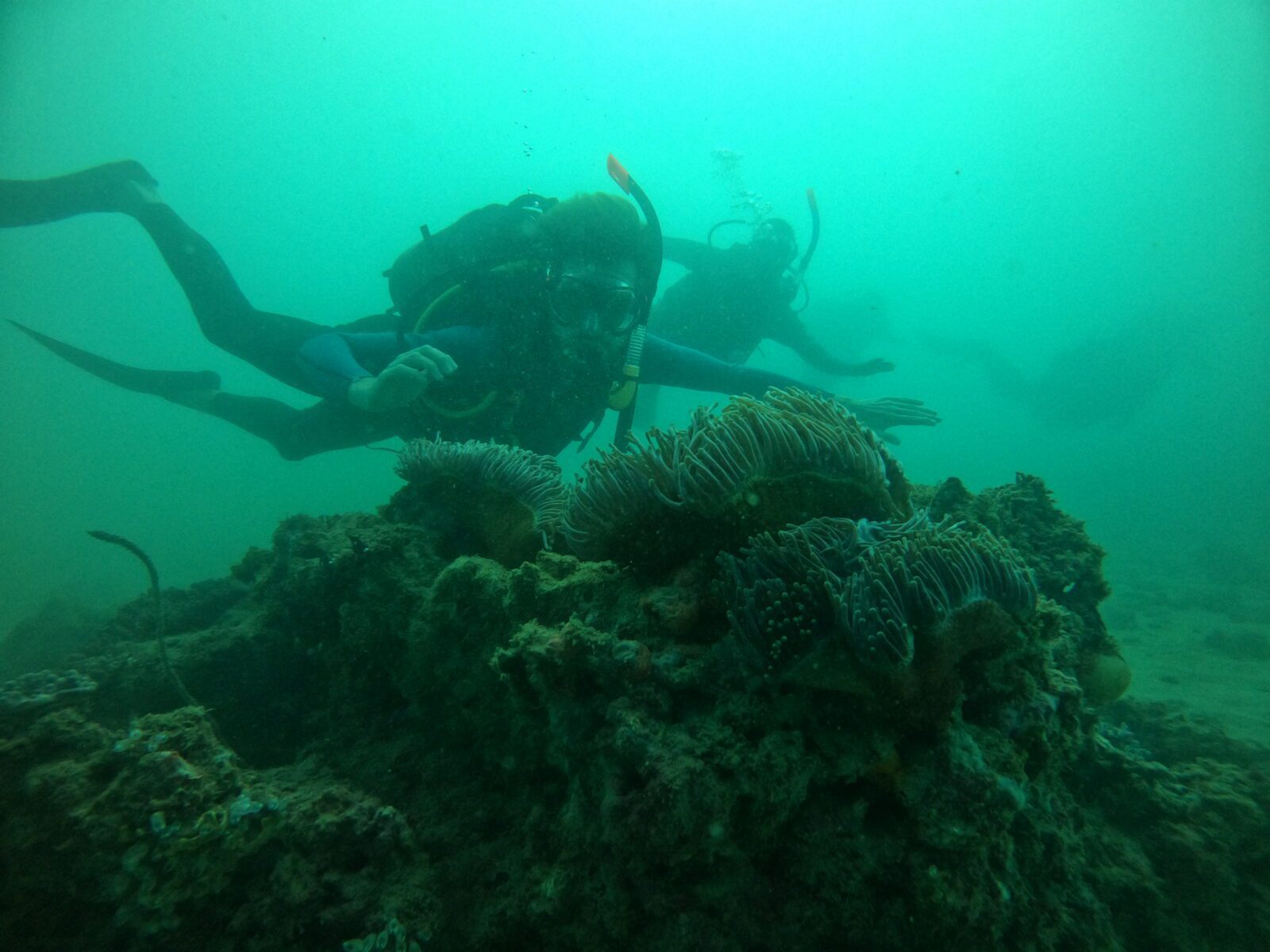
Photo by Graham Ragan
In 2020 we launched a new science programme at our Andavadoaka site in southwest Madagascar in response to the impact of Covid-19, which led us to permanently halt our volunteer programme. One of the most important aims of the programme was to train community members to monitor marine resources and collect vital data, just as the volunteers had done before. We are thrilled that the training efforts have been a success and are now expanding up the west coast of Madagascar.
“As a local Velondriake LMMA science team member, we were happy to lead this programme because we had already been trained by the Blue Ventures team. We love to share our skills and teach our friends. We have shared our knowledge of marine species like fish, urchins, corals, etc. They are also Vezo, so it’s easy for them to understand, especially when they do underwater tests since they have traditional knowledge passed down in their communities.” Lahinirko Buscotin, a local science team trainer.
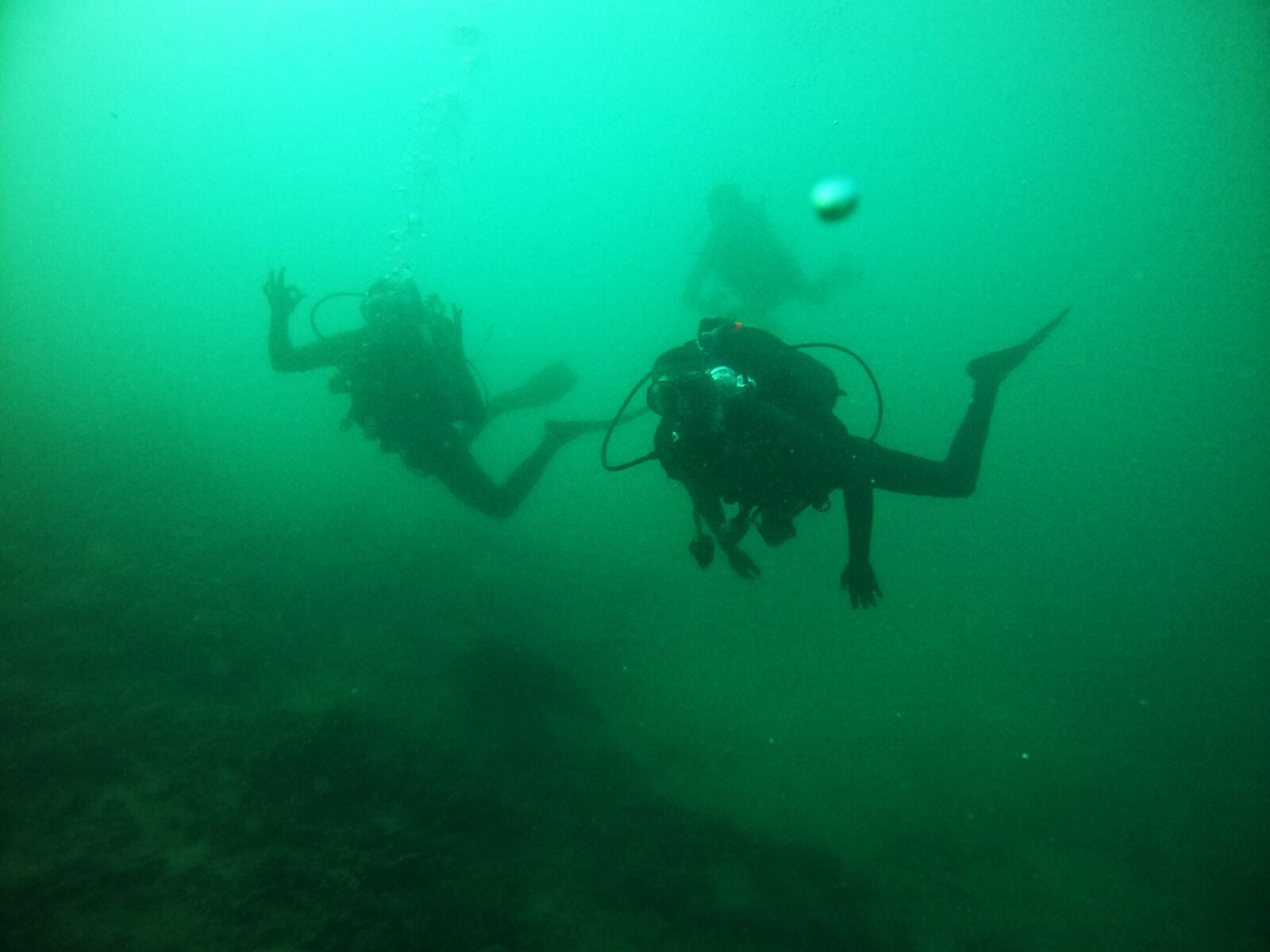
Photo by Graham Ragan
Once they have completed their training, the participants will conduct annual ecological surveys in the Barren Isles LMMA for the next four years to help their communities in decision making for conservation and fisheries management.
“I will share what I’ve learned with my friends and fellow fishers. Many are worried about doing what they can to catch fish today – breaking corals, catching juveniles, using destructive fishing practices – rather than ensuring there are more fish tomorrow. We can see through surveys that our resources are running out. This is proof for those who don’t believe it and don’t care to protect the ocean. We can show them what’s really happening and what can happen if we work together to protect it.” Alain Roger Manolasy, Vezo fisher, and one of the trainees.
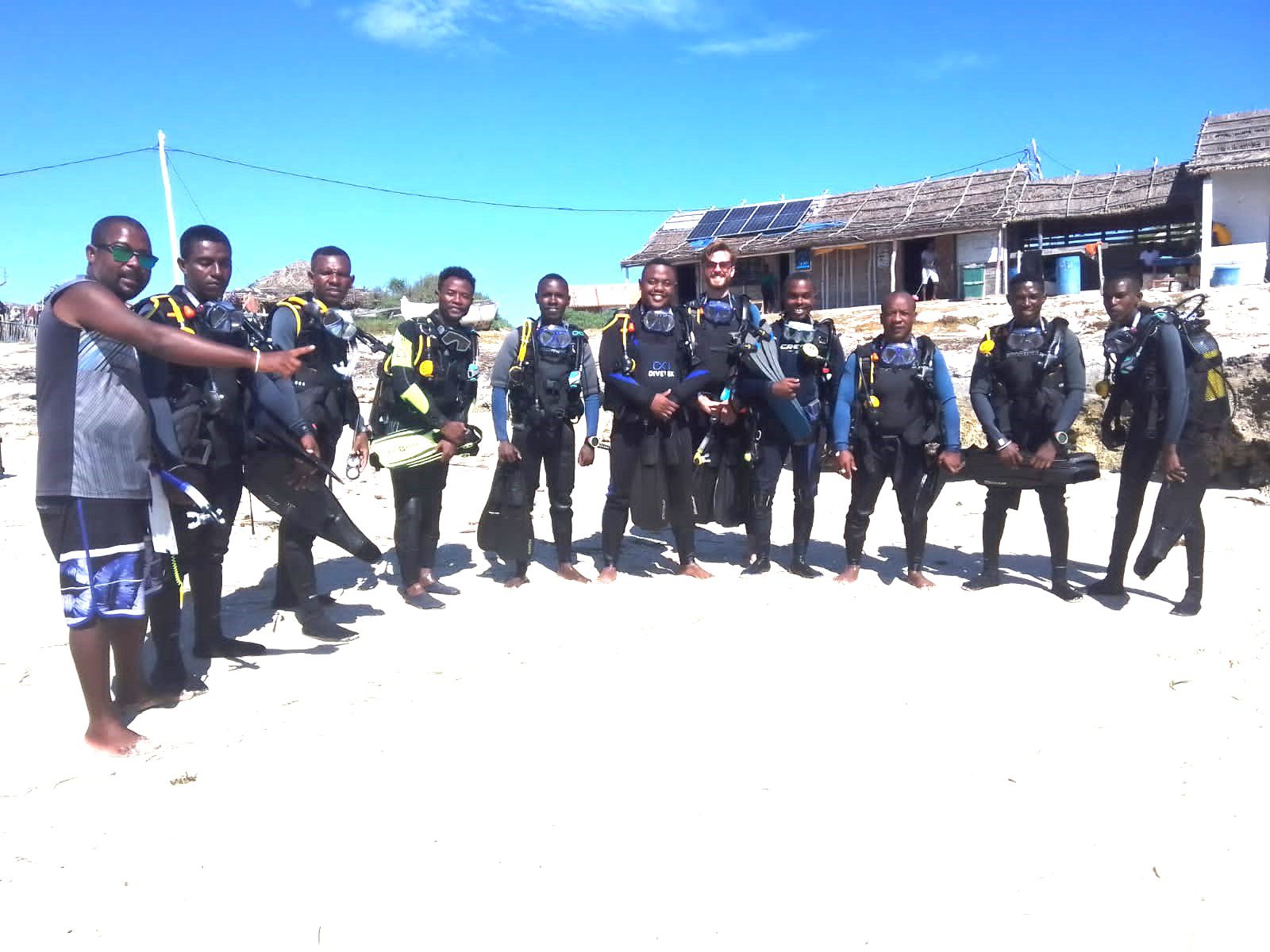
Photo by Graham Ragan
Conducting this training is a significant first step for the Blue Action Fund project’s ecological monitoring component and a hallmark of our work in capacity building and community support in implementing protected areas.

